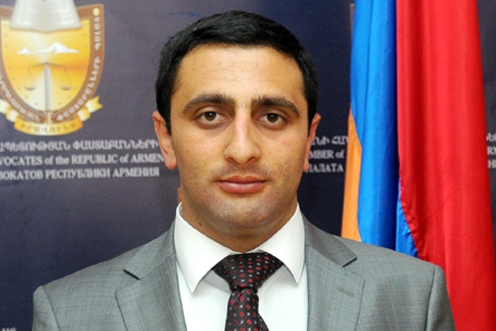The Judicial and Legal Reform Strategy 2019-2023 envisages amendments to the Civil Procedure Code and the Law on Mediation. These changes provide for the establishment of mandatory mediation disputes over certain legal relationships, such as family, work, banking, and etc.
Iravaban.net talked about the topic with advocate and mediator Mr. Gagik Grigoryan.
According to him, establishing mandatory mediation will be effective, especially for cases that the latter can easily resolve.
“The strategy envisages mandatory mediation only in case of a few disputes, but I think it would be good to apply it to other cases as well. If citizens or legal entities in specific cases are obliged to apply to a mediator before going to court to resolve the dispute through mediation, and only after failing in it to apply to the court, then the applicability of mediation will increase. In that case, the courts will also be relieved.
Mandatory mediation will also contribute to the quick resolution and settlement of disputes in society, economic, financial, marital, friendly, labor and other relations,” he said.
The strategy envisages taking steps to introduce modern tools for mediation, for example, online or telephone mediation to resolve disputes between consumers and public service organizations through them. It is noted that through such a platform the settlement of disputes can be carried out in a short time, at a lower cost for the consumer or even free of charge, through the means of public service provider.
According to the mediator, such a reform could have a positive impact.
“As the practice of mediation is not widespread in our country, and the disputing parties rarely apply to the mediator’s service, it is therefore difficult to assess the extent to which this reform will increase the efficiency of the mediator’s work. As in some cases, due to various circumstances, it is not possible to ensure the presence of the parties at the meeting with the mediator, in this case, remote mediation will save time, as well as allow remote communication between the parties to the dispute and the mediator. I think it will have a positive effect as well,” Grigoryan said.
Referring to the gaps in the field, which need to be regulated, but are not included in the strategy, Grigoryan said, “The issue here is how the public sees mediation as an effective alternative tool for dispute resolution. I think it is more a matter of practice than legal regulation.
Mediation, as an institute, has been introduced since 2015. Although legislation on mediation has improved considerably in recent years, but at the moment it is difficult to talk about legislative gaps, because the experience of using it is quite small in our reality.
For example, judges play an important role in increasing the applicability of mediation. I should mention that the Civil Procedure Code obliges the judges to inform the disputing parties about mediation. The judge is therefore obliged to propose the parties to the dispute to apply to mediators and to settle the dispute through mediation. However, as a rule, most judges do not perform this simple job. In addition, the current legislation stipulates that the court, if it sees a real opportunity to settle the dispute amicably, can make a decision and send the case to the mediator, but in practice such cases are very rare. Judges are not inclined to send disputes to mediation. I think this is one of the reasons that applicability of mediation is not widespread in our country. The other reason is the mode of thinking of our society, the value system, their approaches to disputes, as well as their understanding of dispute resolution mechanisms.
The mediator is satisfied with the changes in the legislative level in the field.
“I do not consider the practice of applying the established rules sufficient. That is, the problem is largely in applicability. As the institute is new and alien to our society, there is a need for a special state policy for this institute to take place, but it does not happen. It is true that legislative reforms were carried out, but no special policy was pursued for the development of this institution. For example, the law stipulates that a competition for licensing mediators must be held every year, but this is not done. There is a self-governing organization of mediators, but that organization cannot function either, as the number of mediators is very small.” Gagik Grigoryan said.


















